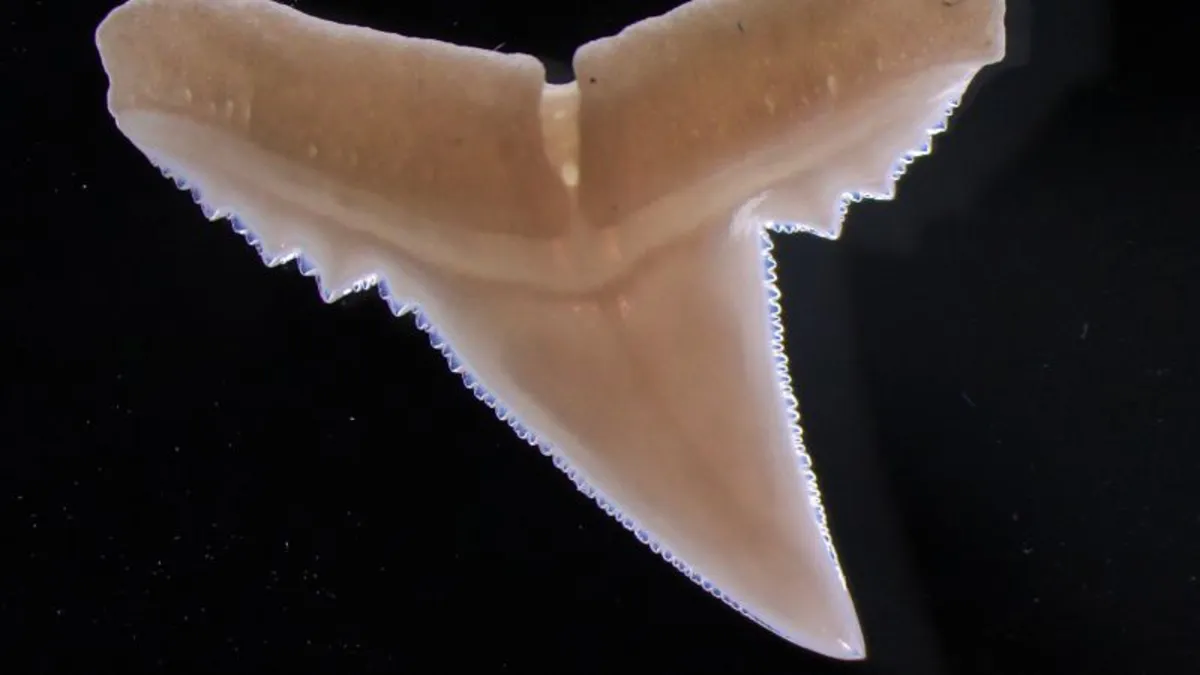
New research published on Wednesday sheds light on how the ongoing climate crisis may affect one of the ocean’s most formidable predators: sharks. The study investigates the potential impact of increasing carbon emissions on sharks' highly specialized, flesh-cutting teeth. As carbon dioxide levels rise in the atmosphere, the ocean continues to absorb more of this gas, resulting in lower pH levels and increased acidity in seawater. This phenomenon, known as ocean acidification, poses a threat to numerous marine species and ecosystems.
According to Maximilian Baum, a biologist at Heinrich Heine University in Düsseldorf, Germany, and the lead author of the study published in the journal Frontiers in Marine Science, "Ocean acidification is known to damage calcified structures like corals and shells. We wanted to investigate whether shark teeth, particularly in species that swim with their mouths open to ventilate their gills, might also be vulnerable." Baum's findings suggest that even apex predators like sharks can exhibit visible damage under acidified conditions, which indicates that the effects of ocean acidification could be more profound than previously thought.
In this groundbreaking study, Baum and his team collected 600 naturally shed teeth from 10 blacktip reef sharks (Carcharhinus melanopterus) housed at the Sea Life Oberhausen aquarium in Germany. Shark species typically lose and regrow their teeth, with the replacement rate varying from a few days to several weeks. The researchers selected 16 undamaged teeth and 36 with limited damage, placing them in two separate 20-liter water tanks for eight weeks. One tank maintained a pH level of 8.2, close to the current ocean average, while the other contained more acidic water with a pH level of 7.3, projected for the year 2300 based on a 2003 study published in Nature.
Since the industrial revolution, the pH of surface ocean waters has decreased by 0.1 units, resulting in an approximately 30% increase in acidity, according to the National Oceanic and Atmospheric Administration. The teeth exposed to the more acidic environment showed "visible surface damage such as cracks and holes, increased root corrosion, and structural degradation," explained Sebastian Fraune, a professor at Heinrich Heine University and senior author of the study. This damage could significantly alter how sharks locate and digest their food.
Baum further elaborated, "Many shark species use multiple rows of teeth simultaneously, and individual teeth can remain functional for weeks or even months. Cumulative damage could impair feeding efficiency and raise energy demands, especially in species with slower tooth replacement cycles." The implications of this research highlight the critical role that shark teeth play in their ecological success.
While the study provides important insights, it is not without limitations. Ivan Nagelkerken, a professor of marine ecology at the University of Adelaide in Australia, noted that the conditions tested may not accurately represent those found in living sharks. Additionally, the study considered an "extreme" scenario of ocean acidification, assuming current greenhouse gas emissions would persist until 2300. Nagelkerken, who was not involved in this research but had participated in a 2022 study on a different shark species, indicated that prior studies found sharks' teeth to be relatively resistant to ocean acidification.
Despite the study's limitations, Baum and his coauthors believe their findings provide a crucial baseline for understanding the vulnerability of shark teeth to ocean acidification. "Our study is significant because it highlights the potential damage to hard tissues like teeth," Baum stated. As apex predators, sharks play a vital role in maintaining the health of marine ecosystems. If ocean acidification, in combination with other stressors such as overfishing and plastic pollution, weakens sharks' resilience, it could trigger cascading effects throughout marine ecosystems.